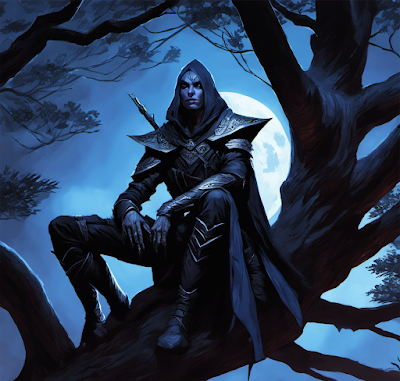Some Thoughts on Poe
With the release of the Netflix show Wednesday featuring Jenna Ortega as Wednesday Addams, there has been some renewed interest in dark and gothic things. At least, there has been for me. One thing I like about the show is that it features many Edgar Allan Poe references. Wednesday attends Nevermore Academy. There is a Poe Cup competition where the students dress up as characters from Poe’s stories. For goodness’ sake, there’s even a huge statue of him in the school. Naturally, I took an interest in the show, and it reminded me of my love for Poe and his macabre sense of reality. My students will tell you that I’m a huge fan. Every other Friday I walk into school with a T-shirt displaying Poe’s somber visage. But why do I admire Poe? Well, I suppose it’s because of his dark stories and how they resonate with me.
Poe is a master of exposing the darkness of the human mind. If anyone wants to find a monster, they have to look no farther than inside their own heads. And Poe makes that quite clear with his use of the unreliable narrator. Notably, there are three stories where this is shown, they being “The Tell-Tale Heart,” “The Black Cat,” and “The Cask of Amontillado.” All three stories are about narrators who commit murder, and none of them are identifiable.
In these stories, Poe is maddeningly consistent with refusing to identify who the narrators are in these stories (with the exception of Montressor in “Cask,” but we don’t get anything other than his last name). It is through these faceless narrators that we are easily able to assign them faces of anyone we want. As I pointed out to my students as we discussed “The Tell-Tale Heart” a few weeks ago, the murderer could be anyone.
It could be anyone.
What Poe does is expose the vileness and darkness of the human psyche. We all have the capability of evil. We all have the means to be vile and perverse. Poe knew this. And he tells us this. He practically shouts at us, “You’d better be careful, lest you become a murderer yourself.”
Stories like the ones Poe creates are pessimistic and gruesome. But they also function as a warning. A warning that prompts us to take a look inside ourselves and examine our hearts. Do you burn with vengeance like Montressor does as he broods on his anger towards Fortunato? Are you driven mad by a Vulture Eye to the point that you no longer have self-control? “Take heed and know thyself,” Poe tells us through his stories. “We are all on a slippery slope, and if you aren’t careful, you’ll go tumbling down.”
There are many reasons I love Poe, but his talent for surgically opening the back of our skulls to expose the complexities and shadows of our minds to the light of the world is strongly compelling. By reading Poe, you get a taste of how vile humans can be, and by doing so, you strive to be noble and upstanding instead.
Work
Cited
Poe,
Edgar Allan. The Complete Tales and Poems of Edgar Allan Poe. Castle
Books, 2001.
This article originally appeared in The People-Sentinel.
Image by <a href="https://pixabay.com/users/darksouls1-2189876/?utm_source=link-attribution&utm_medium=referral&utm_campaign=image&utm_content=5729564">Enrique Meseguer</a> from <a href="https://pixabay.com//?utm_source=link-attribution&utm_medium=referral&utm_campaign=image&utm_content=5729564">Pixabay</a>



Comments
Post a Comment